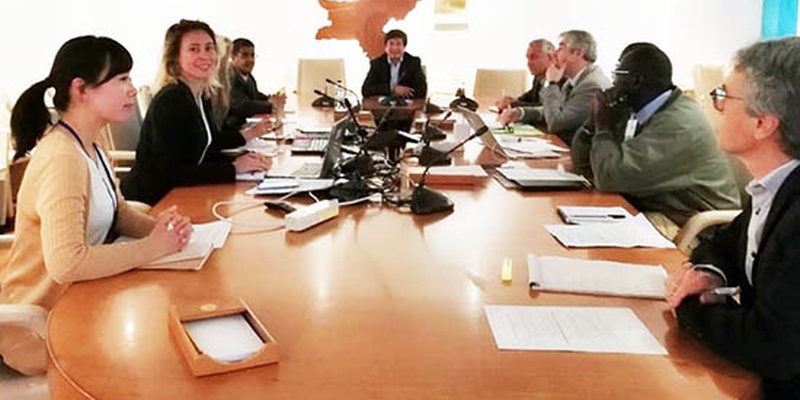The start of a fruitful collaboration between the IPPC Secretariat and COLEACP
Posted on mar, 28 Mai 2019, 09:08

COLEACP and the IPPC Secretariat identified several areas for potential collaboration in a recent meeting. © FAO
20 May 2019, Rome - A delegation from the Comité de Liaison Europe-Afrique-Caraïbes-Pacifique (COLEACP) attended a one and a half day meeting with representatives from the IPPC Secretariat to discuss areas for collaboration.
COLEACP is a civil society organization established in 1973. Its aim is to develop the agri-food trade in an inclusive and sustainable way, with a particular focus on fruit and vegetables from countries in Africa, the Caribbean and the Pacific (ACP). Since 2001, COLEACP has implemented a series of technical assistance programmes, financed primarily by the European Union.
An initial focus on exports has evolved to targeting production and trade in domestic and regional markets. COLEACP supports a value-chain approach involving producers, small and medium enterprises (SMEs), local services, and public authorities. It also supports public-private capacity building and collaboration to strengthen the competitiveness and sustainability of the ACP horticultural sector.
COLEACP recognizes that while protecting human, animal and plant health is fundamental to any agri-food value chain, the World Trade Organization Sanitary and Phytosanitary Measures (WTO-SPS) have an impact on domestic, regional and international trade. COLEACP helps producers meet the commercial demands of the market while complying with regulations and standards. For example, the new Fit for Market SPS Programme emphasizes plant health while helping producers and public authorities meet phytosanitary regulations and international standards.
Areas for potential collaboration between COLEACP and the IPPC Secretariat
COLEACP and the IPPC Secretariat identified several areas for potential collaboration that will be further discussed and developed. These include:
-
producing and translating guides and training materials;
-
providing support and tools to help countries conduct Pest Risk Analyses (PRAs) and prepare regulated pest lists;
-
analysing national SPS systems in ACP countries and conducting Phytosanitary Capacity Evaluations (PCEs);
-
sponsoring representatives from ACP countries participation in IPPC events such as the Commission on Phytosanitary Measures (CPM) or regional meetings. In 2019, COLEACP financed the attendance of several ACP delegates to CPM-14; and
-
sharing information and raising awareness about each other s activities on their respective websites.
During the meeting, the benefits of collaboration were clear to both institutions and this may result in a future Memorandum of Understanding.

